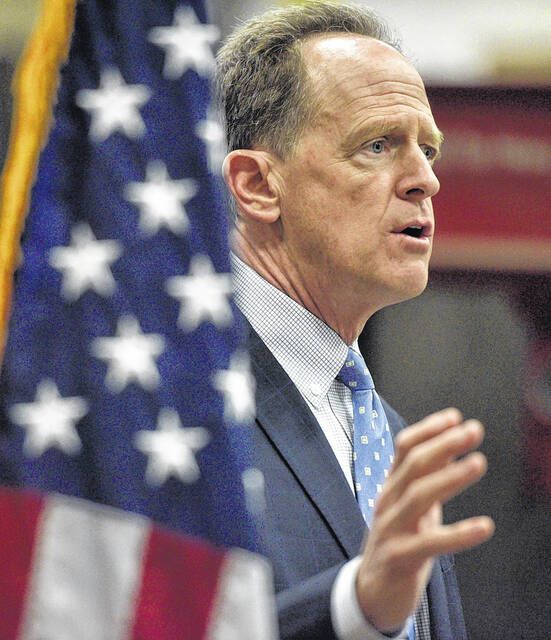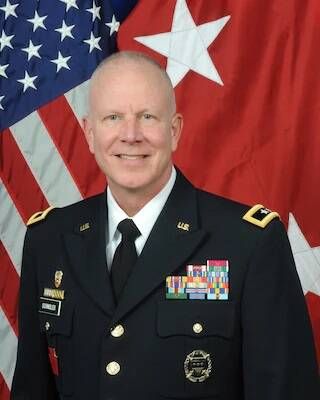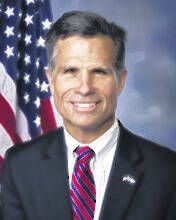Click here to subscribe today or Login.
Officials from the Pennsylvania Department of Labor & Industry’s (L&I) Apprenticeship and Training Office (ATO) joined workforce development professionals this week at Pennsylvania College of Technology (PCT) for an annual summit to highlight the integral role apprenticeship programs play for employers in both attracting and maintaining a skilled workforce.
“Pennsylvania has a long and proud history of apprenticeship programs focused on the skilled trades industries, like manufacturing, construction, and transportation. In the last few years, new apprenticeship opportunities have emerged in industries like healthcare, IT, and energy. As a workforce development strategy, apprenticeships are gaining momentum in non-traditional occupations and strengthening our commonwealth’s economy,” said Tara Loew, director of the ATO. “It is a proven fact that registered apprenticeships create employment opportunities, with most apprentices earning an average starting salary of $70,000 upon completion of their program.”
Loew joined workforce development professionals from PCT for the 2022 Apprenticeship Summit along with an audience of employers from a variety of industries that are either already participating in apprenticeships or are interested in starting an apprenticeship program. The theme of today’s summit was “Improving Recruitment and Retention through Apprenticeship,” where experts explained what registered apprenticeship is, how a program is constructed, and how it can benefit a company’s bottom line.
“The challenges of a skilled worker shortage are impacting companies in all sectors and are only getting worse as we rebound from COVID,” said Chris Ray, executive director of workforce development at PCT. “Apprenticeships overcome these challenges through comprehensive upskilling of employees, while bolstering recruiting and retention efforts to further close the skills gap.”
PCT staff emphasized the many pathways to education and ultimately a successful career, making the point that industry training – especially apprenticeship – and a college education are not always mutually exclusive.
“Penn College has an extensive history of responding to the needs of industry. These summits are yet another example of our agility in understanding urgent workforce needs, while providing timely and critical information to help companies overcome the challenges they present,” said Shannon Munro, vice president for workforce development at PCT.
Meuser support American
Energy Independence Act
U.S. Rep. Dan Meuser, R-Dallas, this week said for the sixth time, the American Energy Independence Act was blocked for consideration this week in the U.S. House of Representatives.
Meuser said 220 House Democrats blocked consideration of Ranking Member of the House Energy and Commerce Committee Rep. Cathy McMorris Rogers and Rep. Bruce Westerman’s Bill, which is co-sponsored by Rep. Meuser.
Meuser stated the legislation would allow more energy production in America, including Pennsylvania. The bill was introduced in the House on February 28.
Supporters of the legislation say it will promote American energy independence by:
• Immediately approving of the Keystone XL Pipeline
• Removing restrictions on liquified natural gas exports
• Restarting oil and gas leasing on federal lands and waters
• Protecting American energy and mineral development
The legislation would also require The Biden Administration to submit an energy security policy within 30 days and require the Secretary of Energy to develop a plan to replace oil drawn down from the strategic reserve.
Meuser has called the situation “a national crisis” and emphasized that becoming energy independent from foreign entities would be beneficial for businesses and consumers.
“Gas prices have reached another record high, yet the Biden Administration and Democrats in Congress continue their assault on U.S. domestic energy,” Meuser stated.
Sen. Toomey:
Ukraine can win
U.S. Sen. Pat Toomey, R-Lehigh Valley, this week released the following statement in support of sending additional aid to Ukraine, NATO allies, and countries affected by Russia’s war in Ukraine.
“Today’s additional aid will give the Ukrainian government and military support it desperately needs—via financial aid, weapons, and training—to continue defending its territory and ultimately win this war of Russian aggression. This assistance will also enable Ukraine to create a long-term strategy to rebuild and will provide immediate support to refugees fleeing Russia’s brutal invasion,” said Senator Toomey. “The package is not perfect, but it is essential that we enable Ukraine to win this war and teach Putin—and all other revisionist authoritarians watching—that such violent disregard for the sovereignty of their neighbors is a massive mistake.”
This supplemental aid for Ukraine includes:
• Over $20 billion in military aid:Enables the Ukrainian military to purchase vital weapons;
• Funds the training of Ukrainian military personnel on unfamiliar U.S. and allied weapons systems;
• Replenishes American military supplies, which were depleted as a result of previous donations to Ukraine; and
• Enables neighboring NATO allies to purchase weapons and supplies.
• Additional financial support for NATO allies, including the Baltics, and for US troops deployed to the region.
• Humanitarian and other assistance for Ukrainian refugees, including eligible refugees in the U.S.
• Funding to support the reopening and operation of the U.S. Embassy in Kyiv.
• Immediate and long-term financial support for the Ukrainian government and critical infrastructure.
DMVA announces Veterans’
Trust Fund grant opportunities
The Pennsylvania Department of Military and Veterans Affairs (DMVA) this week announced that the 2021-22 Veterans’ Trust Fund (VTF) is accepting supplemental grant applications for programs and services benefiting Pennsylvania veterans. The DMVA will award VTF grants to non-profit organizations and veteran service organizations across the state. Grant applications must be received no later than 2 p.m. EST on Wednesday June 1, 2022.
“These supplemental grants are possible due to the continued generosity of Pennsylvanians who donate year-after-year to the Veterans’ Trust Fund,” said Maj. Gen. Mark Schindler, Pennsylvania’s adjutant general and head of the DMVA. “We are honored to partner with community organizations and county advocates to see that the needs of our veterans and their families are met.”
Grants will be considered in the following areas:
VTF funding is available to veteran service organizations with 501(c)(19) status and non-profit organizations with a mission of serving Pennsylvania veterans granted 501(c)(3) status under the Internal Revenue Code. Funding priorities for applicants in this category are employment and education, behavioral health initiatives and other programs or services that address unmet needs of veterans and their families.
Schindler noted that organizations that applied under the original fiscal year 2021-22 announcement that closed on January 19, 2022, are not required to reapply under this grant opportunity. Those original applications will be considered as part of this supplement to the current supplemental grant cycle.
Since the grant program began in 2013, 205 grants totaling $5,191,860 have been awarded to organizations providing services to veterans in Pennsylvania.
State highlights mental health
services for older adults
The Pennsylvania Departments of Aging and Human Services this week joined the Pennsylvania Association of Area Agencies on Aging (P4A) on the fifth Annual Older Adult Mental Health Awareness Day to spotlight the mental health services needs of an often overlooked, underserved population: older adults.
“As Pennsylvania’s older adult population continues to grow and becomes more diverse, we need to improve resources and supports to meet the mental health needs of this population, which tends to be more socially isolated than other age groups. We know that social isolation adversely impacts older adults and can lead to feelings of loneliness and depression that can negatively affect their physical and mental health status and result in greater risk of mortality,” said Secretary of Aging Robert Torres. “We also need to eliminate any stigma and myths surrounding older adults and mental health, which may prevent them from seeking help.”
Sec. Torres noted that one common myth is that depression is a normal, inevitable part of aging. However, when faced with depression, individuals can often be treated successfully, allowing them to live with a better sense of mental health and well-being. A second mental health myth of aging is that suicide is only an issue among young people. “Unfortunately, this couldn’t be further from the truth. According to data from the Centers for Disease Control and Prevention, suicide rates are highest among men 65 and older, a clear indication of unmet mental health needs in the older adult community,” said Sec. Torres.
Reach Bill O’Boyle at 570-991-6118 or on Twitter @TLBillOBoyle.











